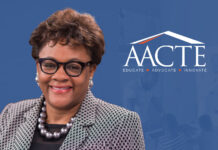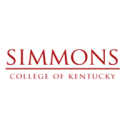 A study co-authored by Pamela R. Bennett, an assistant professor of sociology at Johns Hopkins University in Baltimore, finds that Black students who are from families who immigrated to the United States are more likely to enroll at prestigious colleges and universities than students from African American or White American families.
A study co-authored by Pamela R. Bennett, an assistant professor of sociology at Johns Hopkins University in Baltimore, finds that Black students who are from families who immigrated to the United States are more likely to enroll at prestigious colleges and universities than students from African American or White American families.
Using data from the National Education Longitudinal Study, Dr. Bennett and her co-author, Amy Lutz of Syracuse University, found that 9.2 percent of the Black students who immigrated to the United States or are children of parents who immigrated to this country, enrolled at selective colleges and universities.
In comparison, only 2.4 percent of native-born African American students enrolled in selective colleges and universities. For Whites, 7.3 percent of all students enrolled at the nation’s most elite educational institutions.
The study also found that 75.1 percent of all children of Black immigrant families enrolled in college. This is higher than the rate for White Americans and far ahead of the college enrollment rate of native-born African Americans.
The study, “How African-American Is the Net Black Advantage? Differences in College Attendance Among Immigrant Blacks, Native Blacks and Whites,” was published in the journal Sociology of Education.
Dr. Bennett holds bachelor’s and master’s degrees from Louisiana State University. She earned a Ph.D. in sociology from the University of Michigan.











I don’t understand the point of such research except to create divisions among blacks in the diaspora. Just when is an American born Black…Black? Are they Black after 2 generations? 3 generations? How is the arbitrator of this Blackness? We should be working to move the entire community forward, to learn from each other, to use what works and to discard what doesn’t.
Carol S
I understand the goal of excellence. My mom is from Jamaica and she always wants her kids to strive for excellence.
To Carol. You state that “We should be working to move the entire community forward, to learn from each other, to use what works and to discard what doesn’t…” research such as this is one way to do that. If the findings are reliable and valid (this has been a long known observation), then the next question should be “why” and then, “what are the children of parents who immigrated to this country doing differently than those whose parents did not?”. Rather than being offended by the research, you should be offended by causes.